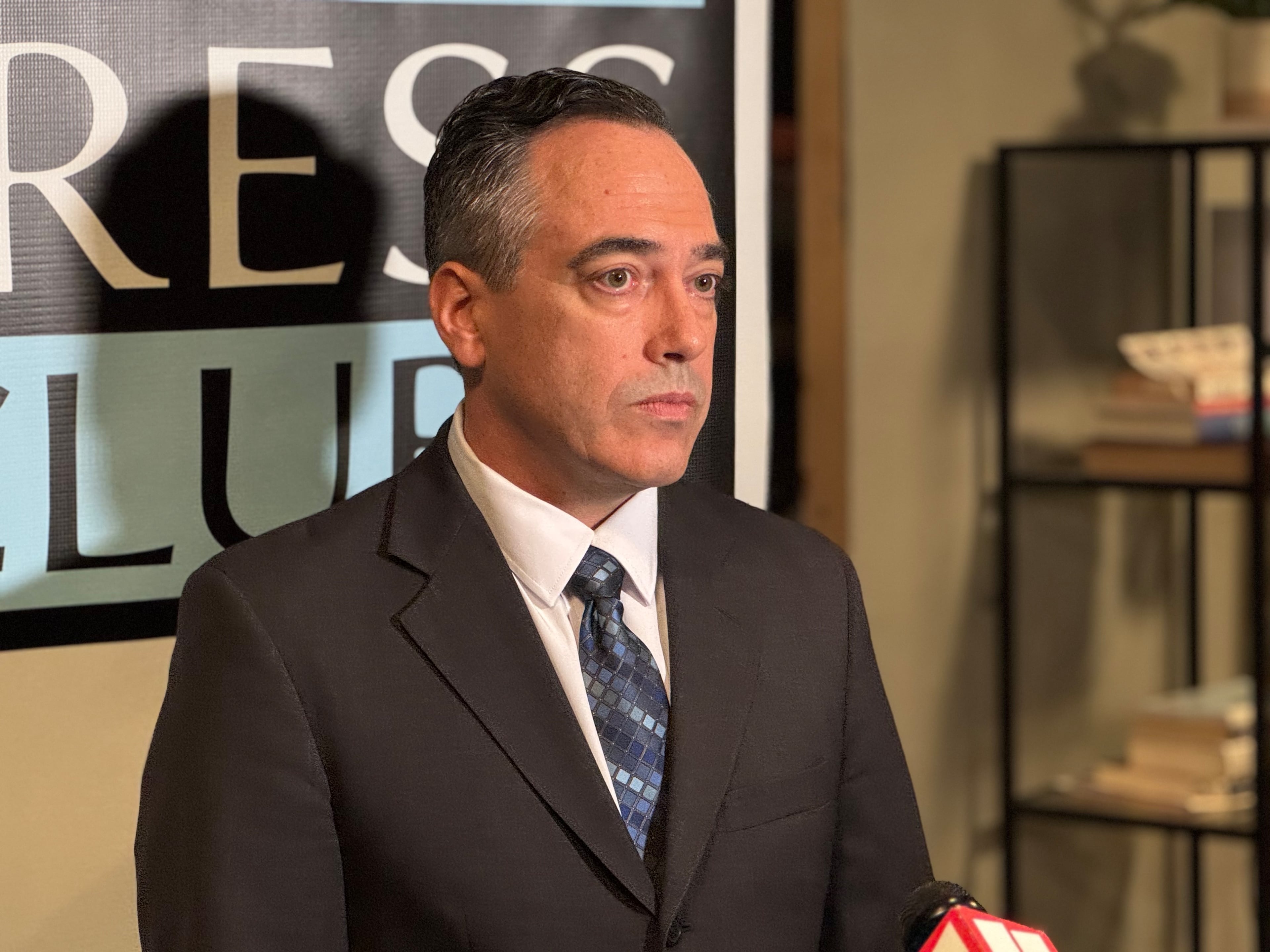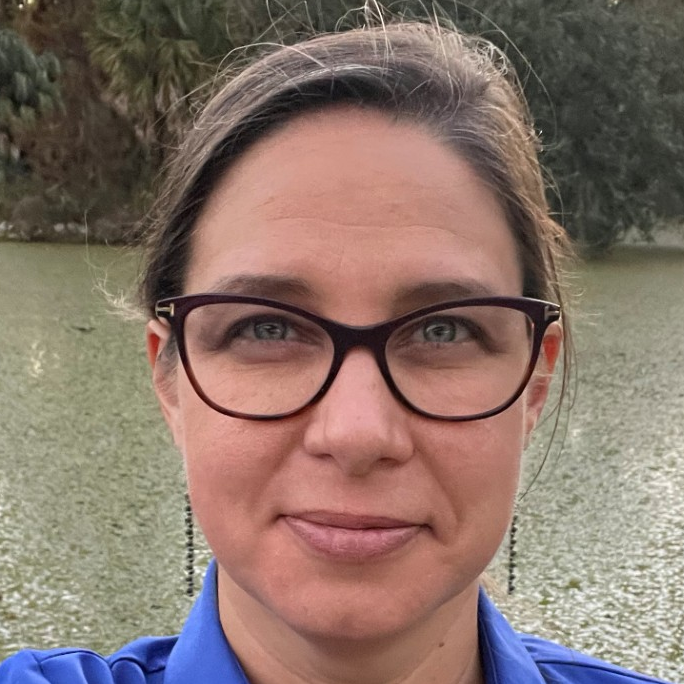Meet the candidates running for seats on state’s powerful utility regulator

For the first time in almost five years, voters will get to choose who serves on the Georgia Public Service Commission, the powerful utility regulator that decides how much many Georgians pay for electricity.
Early voting starts Tuesday for two of the commission’s five seats.
Elections for PSC seats haven’t been held since 2020 because of a legal fight over Georgia’s statewide voting system and whether it discriminates against Black voters. The upshot is that some PSC commissioners have been allowed to stay in office much longer than the six-year terms they were elected to serve.
The PSC’s decisions affect the lives of every almost every Georgian, but arguably its most important task is overseeing Georgia Power, the electric utility with 2.8 million Georgia customers. The PSC decides the rates Georgia Power customers pay for electricity, the fuel sources its electrons come from and how much the monopoly utility is allowed to earn.
The race for the District 2 seat pits incumbent Republican Commissioner Tim Echols, who’s been on the PSC since 2011, against Democrat Alicia Johnson. In District 3, incumbent Republican Fitz Johnson is trying to fend off a challenge from Democrat Peter Hubbard.
Both seats are elected statewide, meaning Georgians across the state can vote in both races, regardless of where they live. The candidates themselves must live in the districts they’re vying to represent.
Early voting in both races runs through Oct. 31. Election Day is Nov. 4.
District 2

Tim Echols, incumbent
Echols was elected to the PSC in 2010. He was reelected in 2016, but has not faced voters since then because of the delayed elections.
He‘s a staunch supporter of nuclear energy, solar power and electric vehicles. Echols is active with federal and regional industry groups that represent state utility regulators and frequently travels to energy conferences in the United States and abroad. But his sometimes bold approach to tackling Georgia’s energy issues has led to clashes with his colleagues on the dais.
Echols declined to be interviewed, but responded to questions in writing.
On Georgia Power bills: Like the other commissioners, Echols signed off this summer on freezing basic electricity rates for Georgia Power customers through 2028, calling it an “unprecedented action” to control rates after rising fuel prices, soaring costs from the Plant Vogtle nuclear construction project and infrastructure improvements led to six rate increases since the start of 2023.
He said Georgia is not alone in facing high energy prices and said other states might follow suit in freezing utility rates.
On data centers and natural gas: Echols said it’s up to the PSC to ensure that data centers get the electricity needed to operate.
While residents in other states have been footing the bill for these power-intensive structures, Echols said the changes that commissioners made to Georgia Power’s billing structure were “adequate and appropriate to protect existing ratepayers.”
On nuclear power and building more reactors in Georgia: Echols was an unwavering supporter of Plant Vogtle and said he would like to see more large nuclear reactors built in Georgia because the state’s utilities have the experience in doing so. But he said this should not happen until after 2050.
“It is too risky for us to try again right now,” he said.
The question of risk has hung over the nuclear industry, as no reactor has been built on time and within its budget.
Industry supporters and many clean energy advocates agree that the U.S. cannot have a reliable power grid supported by carbon-free electricity without increasing the amount of nuclear energy in the mix. But Echols wants the federal government to shoulder the risks instead for any additional large reactors in Georgia and to perfect designs for newer ones before states decide to build.
“Then, states like ours could get a firm price and move forward with assurance that overruns would not happen,” he said.

Alicia Johnson
Johnson is the Georgia managing principal at Health Management Associates, working on strategy for national projects that focus on equity, efficiency and sustainable development.
Johnson also has been a member of boards and task forces that focus on racial equity, public accountability and economic opportunity. Johnson said she is running for the PSC to further that work and to bring accountability to an agency.
On electricity bills: Johnson said the PSC has been “rubber-stamping” requests from Georgia Power to raise rates.
“They have not been regulators,” she said.
Roughly 47% of Georgia’s households are working families with strained economic assets, Johnson said. She thinks the PSC does not center decisions on those families and considers that to be “frightening.”
In that she said she sees opportunity, however.
This includes requiring a third-party audit to vet the utility’s costs spent on projects. She wants to move to a competitive electricity procurement process to ensure Georgia Power is using the cheapest form of energy to power its customers. She also wants to require the company to exhaust all financing tools to pay for storm damage to the power grid before asking customers to pay for it.
On data centers: Johnson wants data centers to invest in the communities where they operate and to have an annual “report card” as proof.
This accountability method, she said, would include showing proof of whether data centers have paid for their share of electricity or if the costs have shifted disproportionally to residential customers.
Prioritizing energy efficiency and renewables would open options to meet the high-energy demand that these data centers require, she said. This could be done by requiring the state’s electric utilities to put solar panels on rooftops paired with battery storage.
Johnson suggests Southeastern states take a regional approach to building and transmitting electricity to data centers to reduce the amount of new generation being added to the grid.
On climate change: Georgia already is experiencing the effects of a warming climate, and that should be taken into account in long-term energy planning, Johnson said.
Hotter summers, more frequent, intense storms and flooding have impacted the state in recent years. She blames fossil fuel power plants, which contribute to greenhouse gas emissions. This shows up in the form of air pollution that worsens people’s health.
What’s more, relying on the volatile natural gas and coal markets opens up customers to the risks that come with fuel spikes.
“I’m a person with asthma, and I can tell you directly that air matters,” she said.
District 3

Fitz Johnson, incumbent
Johnson is an Army veteran who had a successful private sector career before he was tapped for the PSC.
This is the first time Johnson has faced voters since he joined the PSC in 2021. He was appointed by Gov. Brian Kemp to take the place of former Commissioner Chuck Eaton, who’s now a Fulton County judge.
On Georgia Power bills: In his time on the PSC, Johnson has taken several key votes that have raised Georgia Power customers’ bills.
As commissioner, he voted to approve a series of rate increases that have kicked in each year since 2023. He voted to allow Georgia Power to push most of $10 billion in costs from the overbudget expansion of Plant Vogtle to the company’s ratepayers. And he voted to let the utility recoup the cost of fuel used at its power plants from customers, which Georgia law allows.
As the only commissioner who is a Georgia Power customer, Johnson said he’s “felt the pain” of the rate increases but blamed them on inflation and President Joe Biden’s administration.
“We’ve seen the price of eggs, the price of gas, food, everything has gone up,” he said.
Johnson noted he joined his fellow commissioners this summer in voting to keep Georgia Power’s rates steady for now. Next year, the utility will formally ask to charge customers for damage caused by Hurricane Helene and for its outstanding fuel tab, but it’s yet not clear what effect those will have on bills.
On data centers: Georgia has seen a steady stream of data centers, the server-filled warehouses that power artificial intelligence and the digital economy. But the facilities’ huge power needs have sparked worries they could harm other customers. In other states, some ratepayers have seen their electricity bills jump after data centers come to town.
This year, the PSC approved changes to Georgia Power’s billing rules and bolstered oversight of its contracts with large electricity users. The company and the commission say it will ensure other customers don’t pay for data centers’ costs, but not everyone is sure.
Johnson said he believes Georgia’s reliable energy supply has attracted data centers to the state, and said serving the facilities will put “downward pressure” on other customers’ bills. It’s a refrain Georgia Power executives have also used, but one critics have questioned.
Johnson said the commission is monitoring to see whether they need more guardrails to keep data center costs in check.
“We are not afraid to step up and say, ‘Look, we need to add more to it,’” he said.
On Georgia’s energy mix: Johnson and the other commissioners voted earlier this year to extend the life of some Georgia Power coal plants. The commission is also now weighing a historic expansion of the utility’s generation fleet that proposes adding more battery storage and some solar, as well as several new gas-burning power plants.
During recent hearings, commissioners heard from dozens of Georgians concerned about climate change and worried the company’s reliance on fossil fuels will worsen the problem. Johnson said he sympathizes with them but believes coal and gas should remain part of the state’s energy mix.
“We want to be energy independent moving forward, so I am in favor of continuing down that road,” he said.

Peter Hubbard
Hubbard, a renewable energy advocate, solar developer and consultant, has not held public office before, but is a familiar face at the PSC. He has testified in several Georgia Power cases at the commission representing the nonprofit he leads, the Georgia Center for Energy Solutions.
Hubbard was also the only PSC candidate who participated in a debate earlier this month hosted by the Atlanta Press Club.
On Georgia Power bills: Hubbard said he doesn’t think the current PSC has done enough to keep bills down.
He criticized the 2023 settlement approved by the PSC that passed most of the remaining cost overruns from the Plant Vogtle expansion into customers’ rates. Hubbard argued that some of the costs should have fallen on investors in Georgia Power’s parent, Southern Co.
“While you can’t unring the bell of Plant Vogtle, we could have asked shareholders to shoulder more of the burden of the mismanagement and cost overages,” he said.
Overall, he said he would have “pushed back significantly” and that rates would not have risen as much if he’d been a commissioner.
On data centers and Georgia’s energy mix: Hubbard also said he’s skeptical that protections the PSC has put in place will insulate other customers from data center costs.
For one, he said Georgia Power frequently redacts information it deems a trade secret, making it difficult to determine whether new data center rules are effective. He also criticized the utility’s plans to build new gas-fired units, mostly to serve data centers.
“Those are bad investments and those costs — if we don’t have a Public Service Commission that is doing its regulatory watchdog duties — are definitely going to be shifted on to residential ratepayers,” Hubbard said.
Instead, he thinks the PSC should push the utility to add more solar and battery storage.
“Solar and batteries are two of the lowest cost resources in our Swiss Army knife, and we should be deploying them far more,” Hubbard said.
On working with Georgia Power and Republican commissioners: As an expert witness in PSC cases, Hubbard has criticized Georgia Power and, at times, butted heads with commissioners.
If elected, Hubbard said he believes there are “great, innovative things” he can work on with Georgia Power, but said they can expect to face “hard questions.”
As far as the other commissioners, Hubbard said he will collaborate “with anyone who is willing to work in the best interest of Georgians, lower power bills and clean up our power grid.”
A note of disclosure
This coverage is supported by a partnership with Green South Foundation and Journalism Funding Partners. You can learn more and support our climate reporting by donating at AJC.com/donate/climate.




